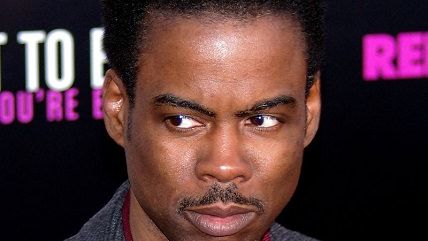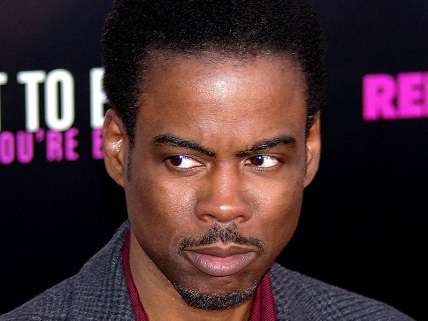Chris Rock Stopped Performing for Students Because Everything Offends Them


There's plenty to dissect in Frank Rich's comprehensive interview with Chris Rock. The comedian covers everything from Bill Cosby (he hopes the allegations are false) to the federal bailout of the auto industry (he was against it).
I found Rock's remarks about why he no longer performs at college campuses most illuminating:
What do you make of the attempt to bar Bill Maher from speaking at Berkeley for his riff on Muslims?
Well, I love Bill, but I stopped playing colleges, and the reason is because they're way too conservative.
In their political views?
Not in their political views — not like they're voting Republican — but in their social views and their willingness not to offend anybody. Kids raised on a culture of "We're not going to keep score in the game because we don't want anybody to lose." Or just ignoring race to a fault. You can't say "the black kid over there." No, it's "the guy with the red shoes." You can't even be offensive on your way to being inoffensive.
When did you start to notice this?
About eight years ago. Probably a couple of tours ago. It was just like, This is not as much fun as it used to be. I remember talking to George Carlin before he died and him saying the exact same thing.
Provocative comedians avoiding the college scene? The Foundation for Individual Rights in Education's Susan Kruth explains why this is a lamentable development:
Just as college campuses are meant to be "marketplaces of ideas" generally, they should be places where comedians and other performers are especially able to play with new acts. It's disappointing to see that this is not so, and that the atmosphere for freedom of speech and comedy in particular on campuses has gotten bad enough that noted comedians are avoiding student audiences altogether. That is a real loss for them—after all, everybody could use a laugh.
Anyone who thinks that there are no consequences for trigger warnings, speech codes, free speech zones, crackdowns on taco night, or general feelings-protection at the modern American university should consider Rock's comments. University administrators are teaching students that it is proper for them to crave insulation from contrarianism and controversy. The result is a kind of de facto censorship, where someone like Rock—a worthwhile speaker, whether one agrees with him or not—has little incentive to share his perspective.
What better way is there to drain universities of their intellectual potency than to dissuade all interesting people from setting foot on a college campus?


Show Comments (201)